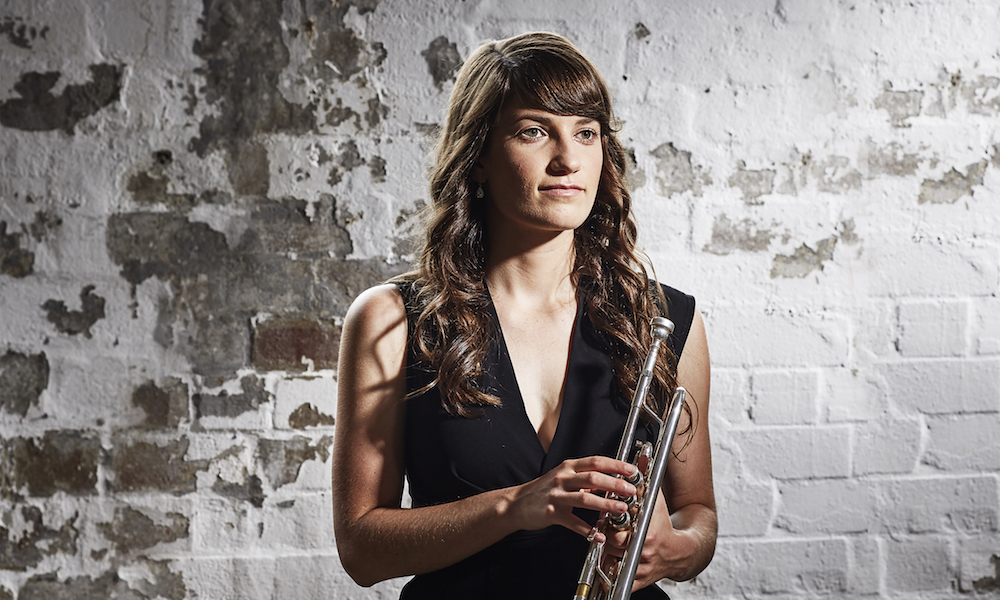Eugene Goossens Hall, ABC Centre Sydney
April 14, 2018
The Sydney-based Metropolitan Orchestra is an ensemble that tends to punch above its weight – and it’s certainly one of the most agile ensembles on the scene. Founded by conductor Sarah-Grace Williams, the orchestra is now in its tenth year of performance and has made a name for itself as a hard-gigging band, performing with soloists across classical, pop and jazz genres, taking to the seas as resident orchestra aboard the Bravo! Cruise of the Performing Arts and maintaining its own concert season, with a penchant for hefty Russian repertoire. The TMO’s second Met Concert for this year, Passion, saw the orchestra tackle an ambitious program spanning Rossini and Bizet to Arutunian and Ligeti.
From Ezmi Pepper’s opening earthy cello solo, the Overture to Rossini’s William Tell showed off the vitality the orchestra is known for, deftly shaped under Williams’ precise baton. If there were some intonation issues in the wind section, the duet between Kate Mostert on cor anglais and Svetlana Yaroslavskaya on flute – the alpine horn-inspired Ranz des vaches – was magical. The brass were immaculate in the blistering finale, the strings showing off a remarkable depth of sound and tight ensemble work.
 Trumpeter Jenna Smith. Photo © Keith Saunders
Trumpeter Jenna Smith. Photo © Keith Saunders
Jenna Smith joined the TMO in a beautifully rendered performance of Alexander Arutunian’s 1950 Trumpet Concerto, the Sydney Symphony Orchestra Fellow bringing a refulgent timbre to the opening fanfare figure before easing into more subtle inflections. Steeped in the colours of Armenian folk music, the Concerto saw Smith firing off swift, virtuosic passages and singing smoothly above the martial menace of the snare drum, finding in the work’s muted melodies and jazzy hues a distant tranquillity much needed in a concert built on so much pedal-to-the-floor intensity.
Alongside Arutunian was his Hungarian contemporary, György Ligeti, whose Concert Românesc of 1951 is infused with Romanian folk music, though not quite enough for it to escape Soviet censorship – it was banned and went unplayed for decades. While the opening movement is pastoral the second movement is a bright folk-dance, TMO Concertmaster Victoria Jacono-Gilmovich bringing plenty of fire to the violin solos, which return in the vibrant finale, the strings throwing up crisp accents. While the Ligeti paired nicely with the Arutunian – and horn calls in the Concert Românesc drew a line through to Rossini’s Ranz des vaches – the work felt oddly placed, between the concerto and the interval. It’s brilliant music, however, and though it has only recently been brought into the fold of orchestral repertoire, it’s well deserving of its place on the concert stage.
A work that’s heard far more often, Bizet’s Carmen is an opera of hits – but when it comes to concert excerpts less is often more. Bizet’s friend, the French composer Ernest Guiraud, put together two suites from the music of Carmen following Bizet’s death mere months after the opera’s premiere, and Williams and the TMO performed both sets back to back in the second half of the concert. There were some rough edges, but there were also stunning moments – Greg Taylor’s bassoon solo in the Entr-acte before Act II and Tyler Wilkinson’s trumpet solo standing in for Escamillo in the Toreador’s Song were particular highlights. Some of the numbers work better in concert arrangement than others – it’s almost impossible to get the same sultry effect with an orchestra as a singer in the Habanera – and some liberal pruning might have allowed the second half of this concert to be a bit lighter on its feet (halfway through the 12 Carmen numbers it began to feel over long), but Bizet’s music is loads of fun and the escalating frenzy of the Gypsy Dance certainly brought the concert to a cracking climax.











Comments
Log in to join the conversation.